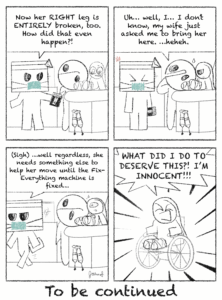Christopher Edley, Dean of the University of California-Berkeley Law School and noted civil rights leader, gave the annual Martin Luther King, Jr. Commemorative Address in the Strong Auditorium on Friday, Jan. 23, speaking on racial justice in America and the need for activism. Edley said that despite apparent advances in equality, racial justice has in recent years actually declined. “It’s ironic that we’re celebrating the 50th anniversary of Brown v. Board of Education in an era when we’re becoming more segregated,” Edley said. “The reality is, there’s a certain ambivalence to segregation.” Edley cited many examples of racial injustice in his speech. For example, he pointed out that black youths are six times more likely to be in jail than whites of the same age. He mentioned that in the 2000 presidential election in Florida, votes from poor minority districts were three times more likely to be disqualified than votes in general. In the congressional races, also, Edley said they were 22 times more likely to be disqualified. Edley is strongly in favor of affirmative action. Even though he said that racism was rooted in complacency and familiarity rather than in greed or hate, he still felt affirmative action is necessary. “In America today, color gets in the way of connecting with people,” Edley said. “To some extent it’s natural to prefer people like ourselves, but it is detrimental to our selves and our society.” He argued that affirmative action is important for three reasons. “One – it helps qualified applicants get past that hurdle of familiarity,” he said. “Two – it helps some organizations, like universities and the military, pursue their mission of success by creating diversity. And three – there’s a risk of having a retreat in equality, a retrogression. I believe if we regress in one place, we will regress in others – call it the domino theory of race relations.”Edley admitted that in some ways affirmative action is like reverse discrimination, but he still stands by it. “Making decisions about people with their race as a factor is very problematic,” he said in response to a question. Ultimately, however, he supported it, saying, “The lack of it leads to a world I don’t want to live in, with worse racial disparities and injustice.” Edley argued that race was really not like other traits simply because of how people think of it. He gave one example of why equality legislation was needed. “Picture one person telling you, ‘we can’t hire you because you’re too tall,’ or someone saying, ‘we can’t hire you because you aren’t experienced enough – and then picture someone saying, ‘we can’t hire you because you’re the wrong color.’ It just sounds wrong,” he said.On the whole, Edley’s speech was well-received. “He’s a good speaker,” junior LaShara Evans, president of the Black Student’s Union said. “We work to promote African-American culture through social events. We’re not politically charged, but the talk did raise a few issues that had to be addressed like that of affirmative action.”Senior Will Jennings also saw the speech. “I enjoyed it very much,” he said, but also commented that he found the speech less emotional and moving than he expected. Jennings attended the event because he had enjoyed some other events related to Martin Luther King, Jr. Day. “I was very moved [at other events], and I hoped to find something like that here, but I didn’t,” he said. “This was very different, it was very intelligent, but really not at all emotional.”Edley had three pieces of advice for those who want to get involved in political or social issues. “One – prepare,” he said, encouraging people to first learn as much as possible about the issues they care about. “Race is not rocket science – it’s harder than rocket science. It took us 10 years to get to the moon, but we’ve had racial conflict for 500 years in America without solving race relations.””Pick a problem and engage it,” Edley said in his second piece of advice. “It reminds me of a New Yorker cartoon, with a guy sitting at a desk who has an ‘Out’ tray with some papers in it, and an ‘In’ tray with a few more papers in it and a ‘Too Hard’ tray with a huge stack over his head.” “Approach a problem like a lawyer to a case,” Edley concluded. “Search for the kernel of truth in what the other side is saying.”Levesque can be reached at clevesque@campustimes.org.
anonymity
Edley gives MLK talk
Our regulations for privatizing articles align with our policies on source anonymization: If it’s deemed that publication may endanger the author, whether to retaliation, risk of verbal or physical threat, or fear of national level surveillance (such as the potential revocation of a VISA), the article will be removed. Read More
arts
Edley gives MLK talk
As proud Americans, we often look down upon authoritarian governments for enforcing censorship on music, but under the Trump administration, free speech and the right to information is slowly but surely being squeezed from our grasp. Read More

